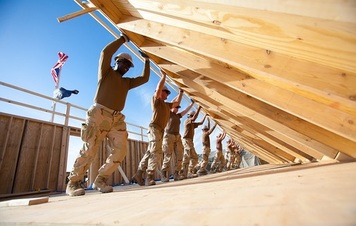 Last week I said you’ve got huge issues if you think the whole purpose of singles committees is to plan activities. I then said that I’d get to that issue later because I wanted to address why we should go after less active singles last. Well, now it’s later. Singles committees should do more than plan activities. Many disagree. They say, “Wait! The Handbook says . . . .” OK, let’s take a look at the Handbook. Before we do, we should understand the Handbook specifies significantly more attention on YSA than SA members. For simplicity, two of my three Handbook quotes come from the SA section. But the concepts are completely transferable. What the Handbook says
Leaders should make special efforts to understand and address the needs of single adults. (Handbook 2: Administering the Church, Section 16.1) How is simply organizing an activity making “special efforts to understand and address the needs of single adults”? To understand needs, you need to know the people with those needs. That means more than just planning an activity. Activities are the means to the end and not the end in itself. Let’s use a fireside (a typical singles activity) to illustrate. Singles firesides often present the gospel in a generalized way. This approach provides little more than a rehash of Sunday School, as though more church were the answer to our problems — not much of a “special effort.” Making “special efforts” doesn’t mean leaders need a separate initiative. They don’t need more work. They just need to work smarter. Continuing with the fireside example, leaders should greet singles warmly and get to know them. All committee members can involve themselves in this effort. Leaders can also encourage committee members to sit with other singles and invite people to sit together. These “special efforts” make a huge difference and don’t require anyone to put another project on their plate. Again, from the Handbook, The stake presidency seeks to understand the needs of single adults and to provide ways to address those needs. (Handbook 2: Administering the Church, Section 16.1.1) Activities don’t “address those needs.” The right approach does. If all we do is reserve space on the calendar, few will care. But if we help individuals feel loved and supported, more will care and even more will want to be a part of that. Filling the gap  Too many seem to justify disengagement with that early phrase about singles meeting their own needs. I’ve advocated repeatedly the need to own one’s life, so I support the concepts of individual self-sufficiency and personal responsibility. Too many singles depend too much on others to do what they can and should do for themselves. At the same time, individuals cannot meet all of their needs on their own. We need to balance individual responsibility with community involvement. In that light I’ve suggested four ways that marrieds can help singles. They apply very well to singles committee discussions and planning. Instead of just doing what’s been done before or picking something just because it’s new, committees should discuss how they will use their activities to meet the needs of individual singles. How can you legitimately claim that your activities meet the needs of individual singles when the names of individual singles don’t populate your meetings or your prayers? I don’t see how you make that case. What I do see is a Handbook saying leaders should seek “to understand the needs of single adults and to provide ways to address those needs.”  Appropriate interaction helps you do that. Activities can provide a wealth of information to inform your committee meetings, but only if you draw it out. These “special efforts” combined with the influence of the Spirit can help you plan more effective activities, which you then use to extract more information to inform future meetings, and the process continues. Marriage is designed to give individuals support and love. Singles don’t have the benefit of that institution. But they have the same need for support and love that marrieds have. Parts of that gap singles can and should fill themselves. But other parts they can’t. And that’s where singles committees can help. The next time you find yourself serving in a singles committee meeting, don’t just complete a template of activity assignments. Plan your activities for the people. Discuss them by name and pray for them by name. Our singles groups can be more than just a checklist exercise if we build networks of support in which everyone ministers to everyone.
0 Comments
Leave a Reply. |
Author
Howdy! I'm Lance, host of Joy in the Journey Radio. I've been blogging about LDS singles life since 2012, and since 2018 I've been producing a weekly Internet radio show and podcast to help LDS singles have more joy in their journey and bring all Latter-day Saints together. Let's engage a conversation that will increase the faith of LDS singles and bring singles and marrieds together in a true unity of the faith.
Comment
Joy in the Journey Radio encourages the free discussion of ideas but reserves the right to remove and/or block comments which do not conform to LDS standards.
Donate
Joy in the Journey Radio offers many free resources to help LDS singles everywhere, but it certainly isn't free! Help Joy in the Journey Radio in its mission to improve the lives of LDS singles by donating today.
Posts by Month
December 2022
Categories
All
|


 RSS Feed
RSS Feed